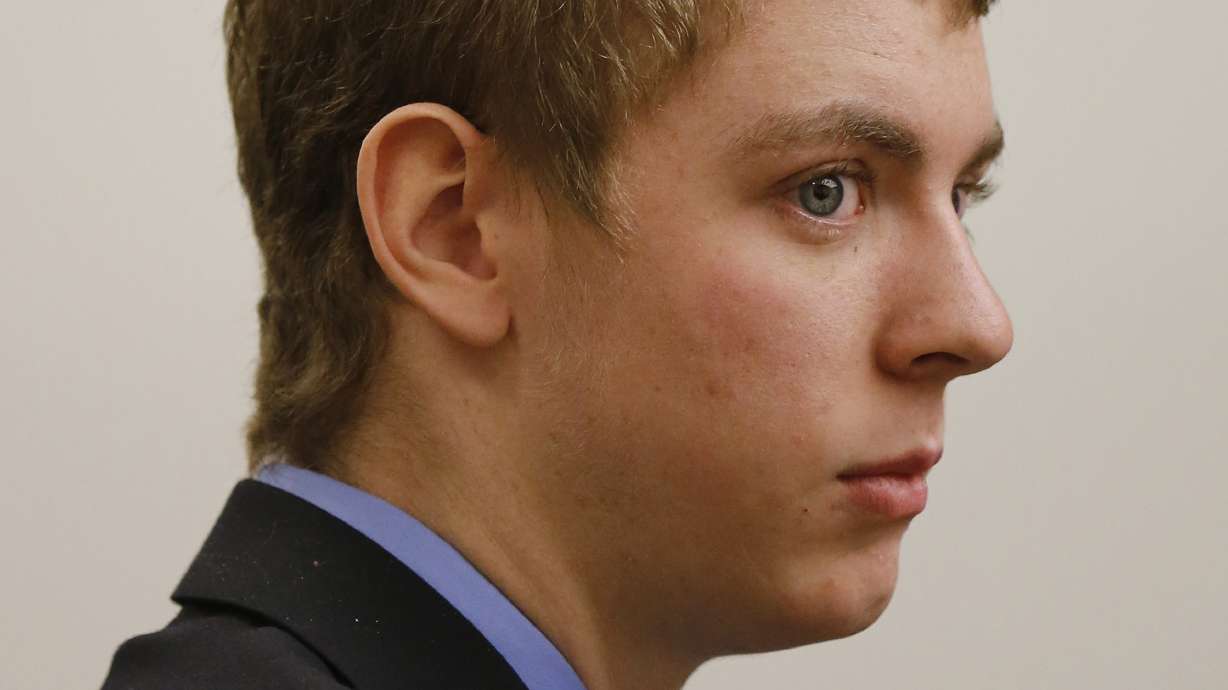Estimated read time: 3-4 minutes
This archived news story is available only for your personal, non-commercial use. Information in the story may be outdated or superseded by additional information. Reading or replaying the story in its archived form does not constitute a republication of the story.
SAN FRANCISCO (AP) — The Northern California judge who sentenced a former Stanford University swimmer to six months in jail for sexually assaulting an unconscious woman has reignited debate about his ability to serve on the bench after removing himself from a separate sex-crimes case.
Santa Clara County Judge Aaron Persky formally recused himself Monday from deciding whether to reduce a San Jose plumber's felony child pornography charges to misdemeanors. A law professor called the move unusual and said it makes it look like Persky is susceptible to "political pressure."
It's the second sex-crimes case that Persky has departed since his June sentencing of 20-year-old Brock Turner exploded in national media. It comes amid an effort to recall Persky and a formal misconduct complaint that a women's advocacy group filed with the state agency that disciplines judges.
Another judge will rule on Robert Chain's child porn case in October.
"While on vacation earlier this month, my family and I were exposed to publicity surrounding this case," the judge wrote in a brief ruling. "This publicity has resulted in a personal family situation such that 'a person aware of the facts might reasonably entertain a doubt that the judge would be able to be impartial.'"
Persky didn't respond to requests for comment. Two attorneys who argue cases in his courtroom have backed up his abilities. Santa Clara County deputy public defender Gary Goodman in June called him a "solid and respected judge," while defense attorney Barbara Muller said he's "one of the fairest judges" in the county.
In Chain's case, Persky said last year that he was "receptive" to reducing the conviction if Chain stayed sober and out of trouble for a year.
Persky, who has handled the case since early 2015, sentenced Chain to four days in jail and ordered him to register for life as a sex offender after he pleaded guilty to possessing dozens of sexually explicit images of children. The judge said he would consider reducing the conviction if Chain complied with the terms of his probation.
Chain's lawyer, Brian Madden, has said his client "worked hard" to turn around his life since his 2014 arrest, including receiving alcohol abuse counseling. Madden didn't return a phone call Tuesday.
University of California, Berkeley, law professor Christopher Kutz said "no formal or actual conflict" appears to exist between Persky and the child porn case, but the "appearance that he seems susceptible to political pressure" does.
"It's a very unusual case," Kutz said.
It comes two months after the district attorney's office removed Persky from a different sexual assault case, saying "we lack confidence" in the judge's ability to decide it impartially.
Organizers of an effort to get Persky removed from the bench say they will begin collecting signatures in April to qualify the issue for the November 2017 ballot.
"Case after case, Judge Persky has demonstrated that his own personal bias compels him to prioritize the well-being of privileged men — rapists, abusers and possessors of child porn — over the survivors of their crimes," said Nita Chaudhary, co-founder of women's advocacy group UltraViolet, which has asked the Commission on Judicial Performance to remove Persky.
The six-month sentence he handed down to Turner, a Dayton, Ohio, resident who had been attending Stanford on a swimming scholarship, drew outrage. Persky cited a probation department recommendation and the effect the conviction will have on Turner's life.
A jury convicted the former Olympic hopeful of sexually assaulting a young woman he met at a campus fraternity party in January 2015 after she passed out behind a trash bin. The two had been drinking heavily.
The case sparked a national debate on college drinking and sexual assault.
Stanford unveiled a revised student alcohol policy on Monday, banning hard alcohol from undergraduate parties and shots from graduate gatherings in an effort to combat binge drinking.
Beer and wine are still allowed, a policy that the Distilled Spirits Council says "sends a dangerous message to college students" that beer and wine are "softer" than hard liquor.
Copyright © The Associated Press. All rights reserved. This material may not be published, broadcast, rewritten or redistributed.








